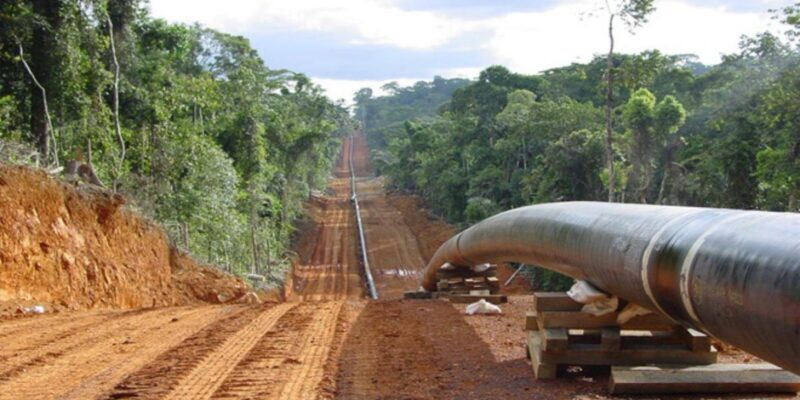The governments of Uganda and Tanzania have rejected claims made by civil society organizations (CSOs) opposing the construction of the East African Crude Oil Pipeline (EACOP).
The two nations have jointly appealed to the Appellate Division of the East African Court of Justice (EACJ) to dismiss a case filed by four CSOs from Uganda, Kenya, and Tanzania, which seeks to halt the project.
On February 24, 2025, Uganda’s Deputy Solicitor General, Mr. Charles Ouma, and Mr. Mark Mulwabo from Tanzania’s Office of the Solicitor General argued before a panel of five EACJ judges in Kigali, Rwanda, that the appeal should be dismissed.
They emphasized that such lawsuits are a drain on national resources and could set a dangerous precedent for future legal challenges against critical infrastructure projects.
The East African Crude Oil Pipeline (EACOP) is a major infrastructure project designed to transport Uganda’s crude oil from the Albertine Graben Region to the Port of Tanga in Tanzania.
Spanning 1,443 kilometers, the pipeline will traverse 10 districts in Uganda and cover approximately 2,740 acres of land. Uganda chose this route over an alternative that would pass through Kenya due to lower costs.
Once completed, the pipeline will be the world’s longest heated crude oil pipeline, designed to transport Uganda’s waxy crude oil.
The project is expected to transport 216,000 barrels of oil per day and is estimated to cost around $5 billion.
The EACOP project is being developed by a consortium including Total Energies, China National Oil Company (CNOOC), the Uganda National Oil Company, and the Tanzania Petroleum Development Corporation.
The discovery of 1.7 billion barrels of recoverable oil in Uganda’s Albertine Graben Region in 2006 led to the launch of the EACOP project, which has since been a focal point of debate.
While proponents of the pipeline highlight its potential economic benefits, including job creation and energy security for the region, critics argue that the project poses significant risks to local communities and the environment.
Four CSOs from Uganda, Kenya, and Tanzania filed an appeal in December 2024 to block the project. This is their second attempt after a similar case filed in 2020 was dismissed in November 2023 for being time-barred.
The critics, including environmental groups and affected communities, assert that the potential harm to local populations and ecosystems outweighs the projected benefits.
Concerns about the pipeline’s social and environmental impact have been raised. According to the Georgetown Environmental Law Review, between 300 and 400 households will need to be resettled, and 1,700 to 3,000 households in Uganda face economic displacement.
Many affected communities are fearful of forced relocation, inadequate compensation, and delays in payments.
Fishing communities around Lake Albert, in particular, have already suffered economic losses due to restricted access to fishing grounds caused by ongoing oil exploration activities.
Despite promises of thousands of jobs, many locals report that these opportunities have yet to materialize.
Despite the legal challenges, both the Ugandan and Tanzanian governments remain firm in their commitment to the EACOP project.
They insist that it is essential for their countries’ economic development and is on track to start oil extraction by 2027.
The governments argue that the pipeline will create jobs, stimulate economic growth, and provide a vital infrastructure link for Uganda’s oil exports.
However, the project continues to face significant legal, environmental, financial, and social hurdles. As the governments push forward, they must address growing concerns from CSOs and affected communities to ensure that the benefits of the project are realized in a fair and sustainable manner.
![]()




